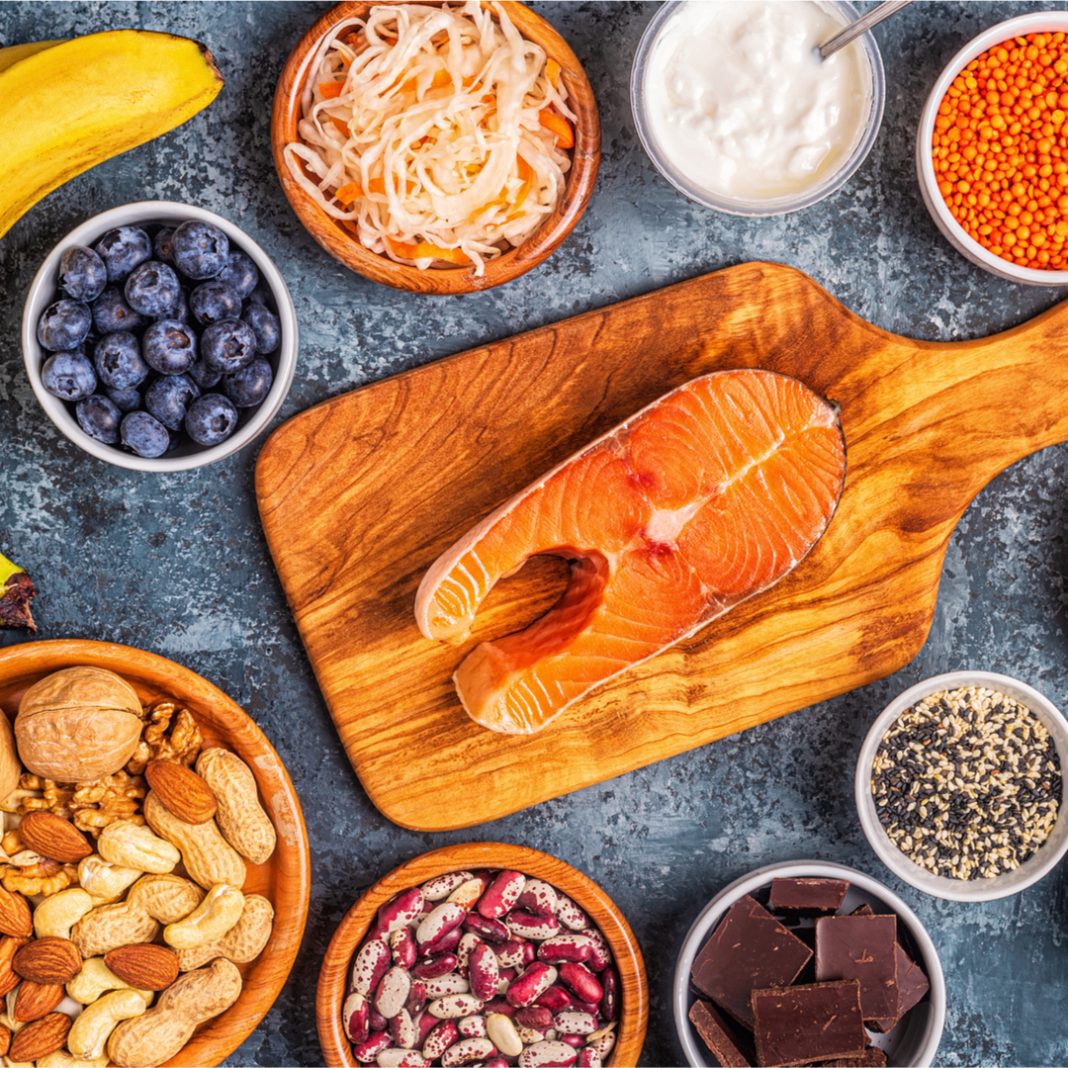Brain Alert: Ninety-five per cent of the body’s supply of serotonin — one of our happy hormones involved in mood stabilization and feelings of wellbeing, is located in our gut.
Brain Alert: It’s important to understand that the quality of your overall diet is what will impact your mood the most. Evidence suggests that those who eat a healthy balanced diet have a larger hippocampus – a part of the brain involved in memory, movement and emotional regulation.
Brain Alert: Feeling a bit moody or low? Check-in with your diet. Food has a big impact on your mood and mental health.
Brain Alert: Our gut is now being referred to as the ‘second brain.’
Keeping these brain alerts in mind, we now know that our diet largely influences our mental health and the functioning of our brain. Food and mood do go hand in hand and need to waltz together.
Let’s take a closer look at the best and worst foods to include in our diet, that will help boost our mood.
The good:
Yoghurt —
Yoghurt is incredibly rich in probiotics, also known as live beneficial bacteria. Regularly including natural yoghurt in your diet can improve the balance of bacteria in your gut. The greater the number of healthy bacteria in our gut, the more likely it is to affect the functioning of our serotonin.
Chocolate —
Cacao contains a powerful type of antioxidant called flavonoids, which appears to have ‘mood-boosting’ properties. We always knew chocolate made us feel good, but now we have the evidence to support it.
Garlic / Onion —
Have you ever felt a little gassy after eating garlic and onion?
This is because garlic and onion are high in Prebiotic Fiber. Prebiotic Fiber is fermented in our large intestine and used as food for the probiotics (aka the healthy bacteria) in our gut. Fermentation produces gas as a by-product and can leave us feeling a little distended or bloated. This is completely normal and is a sign the prebiotics are doing what they are supposed to. As we know, the more we nurture our gut, the more we nurture our mood.
Chickpeas —
Like garlic and onion, chickpeas contain considerable amounts of Prebiotic Fiber too. What makes chickpeas so nutritious is that in addition to their fiber, they are a source of protein and iron as well as vitamin B6. Research has proven that not consuming adequate amounts of B6 is associated with depression.
Oats —
Oats are a nutrient powerhouse. They are an excellent source of Prebiotic Fiber and a source of slow-burning carbohydrates. This helps stabilize our appetite, energy and mood.
Salmon —
Salmon is the richest dietary source of omega-3 essential fatty acids, a type of healthy fat, proven to have a profound effect on our mood. Sixty per cent of the human brain consists of fat, so prioritizing the most nutrient-dense sources is essential for the health of our brain. According to research, consuming adequate amounts of omega-3 can benefit anyone with mood disorders.
TIP: You can also find omega-3 in walnuts, chia seeds, flaxseeds, hemp and algae.
Worst Foods —
When it comes to the ‘worst foods’ to eat for your mood, this isn’t a call to say these foods have to be removed from your diet all together. My journey and experience with food endorses a belief that no food or food group should be excluded from your diet, unless of course for medical, ethical, religious or personal reasons.
Let’s take a look at the bad and not so good.
Alcohol —
While not technically a food, alcohol is a natural depressant, thus it can negatively affect our mood.
There have been interesting studies, (data is somewhat limited) outlining the effect that alcohol has on our gut.
The studies suggest that excessive consumption can disturb the positive balance of bacteria in our digestive tract and therefore negatively affect our mood. If you choose to enjoy alcohol, always do so in moderation.
Refined Carbohydrates —
Refined carbohydrates (think white bread, pastries, pies, sugar-filled cakes, soft drinks and confectionery) can affect our mood in two different ways.
Firstly, Refined Carbohydrates lack fiber, and fiber is an essential component in plant foods, which is fuel for our healthy gut bugs (Probiotics).
Secondly, these types of foods can create rapid spikes and drops in our blood sugar levels, which can affect our appetite, energy levels and mood too.
Did you realize food played such a big role in your overall physical and mental health?
Are there parts of your diet that you will now change?
Have you already made changes? What did you notice with your mood?
Life, with its ups and downs do leave us craving for comfort foods (nutritionally poor foods) so don’t be hard on yourself and give in to those cravings — occasionally.
A nutritionally poor diet that includes a few ‘mood-boosting’ foods will not let you see staggering results. It will need you to reverse your mindset to a nutritionally rich diet, which includes mostly ‘mood boosting foods’ and cheat meal days of nutritionally poor foods. Focus on eating a well-balanced diet full of nutritious wholefoods and always make room for soul-foods as these are just as important for your mood.
Grow in your relationship with food.
The end result should promote gut health and brain health.
Millie Padula — a Melbourne-based dietitian, nutritionist and founder of online nutrition education platform Dietitian Edition.
“Failing to nurture your gut health can negatively affect your mood, plus, most of us can also vouch for the fact that when we fill our bodies with nutritious wholefoods we feel happier too.”
Teach yourself the last waltz — that with food and mood.




